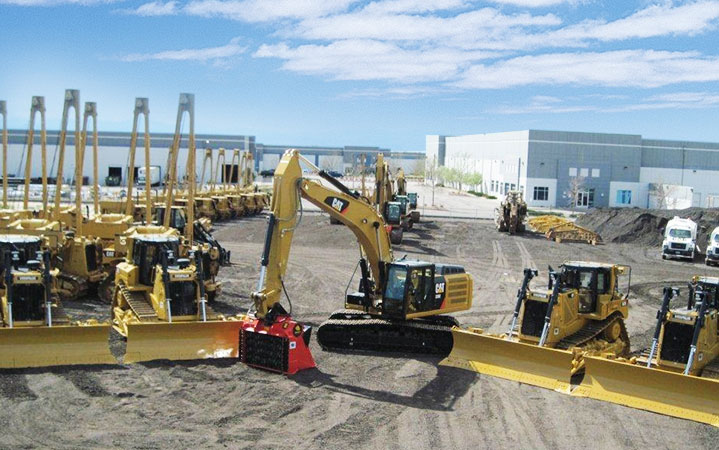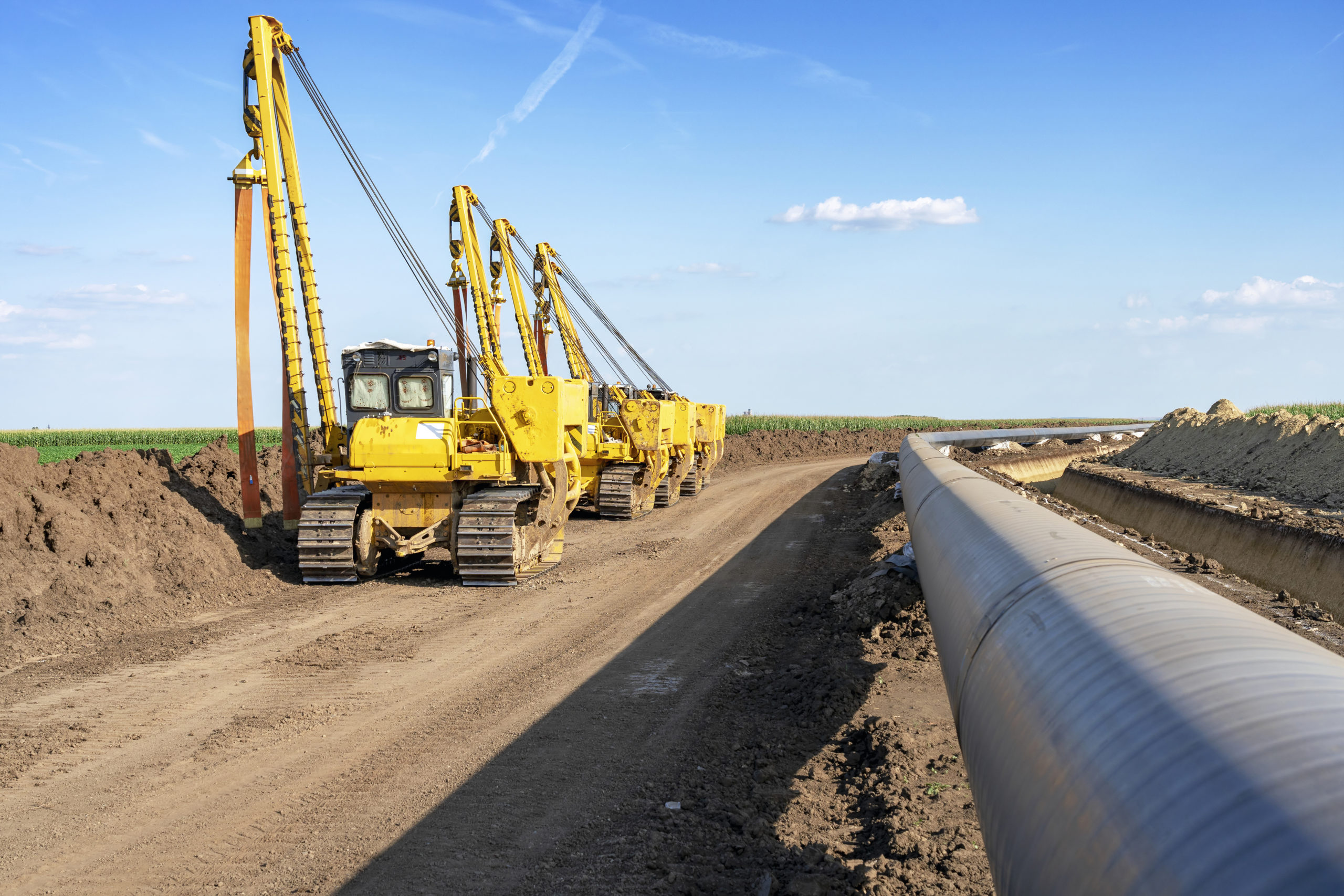Superior Rentals Contact: direct communication options
Wiki Article
A Comprehensive Guide to the Numerous Sorts Of Oil Field Equipment and Pipeline Equipment Available
The oil and gas sector relies heavily on customized tools for effective extraction and transportation. Different sorts of machinery, from drilling rigs to storage space containers, play important functions in this intricate procedure. Each piece of tools offers distinct functions that add to overall functional success. Comprehending these components is vital for anyone involved in the sector. As the market progresses, so too do the modern technologies that sustain it. What improvements are on the perspective?
Drilling Rigs: The Foundation of Oil Expedition
Drilling rigs function as the crucial machinery in the domain of oil exploration, allowing firms to access hydrocarbon reserves buried deep under the Planet's surface area. These rigs are available in numerous types, consisting of land rigs, offshore rigs, and mobile systems, each developed to operate in certain settings. Outfitted with innovative modern technology, piercing rigs can pass through geological developments with accuracy, ensuring efficient resource removal. The structural honesty and operational abilities of these rigs are important, as they should withstand extreme conditions and significant stress. Moreover, the option of an exploration rig impacts the general task cost and timeline, making it an important consideration for oil firms seeking to enhance their exploration initiatives and take full advantage of productivity in their procedures.Pumps: Crucial for Fluid Activity
In the oil extraction procedure, the role of pumps is substantial, facilitating the movement of liquids throughout various stages of production. Pumps are necessary for delivering petroleum, water, and various other fluids from underground reservoirs to the surface and then through pipelines to refineries. They can be found in different types, consisting of centrifugal, positive variation, and submersible pumps, each offering details objectives based on the liquid characteristics and operational needs. Centrifugal pumps are generally made use of for their performance in high-flow applications, while positive displacement pumps master handling thick fluids. The option of pump effects total performance, operational safety, and maintenance expenses. Correct option and upkeep of pumps are essential for maximizing production and decreasing downtime in oil area procedures.Shutoffs: Managing Flow and Pressure

Shutoffs play a crucial duty in taking care of the flow and pressure of liquids within oil areas and pipes. Numerous kinds of valves serve unique applications, each developed to accomplish details functions basic for efficient procedure - Superior Rentals fusion machines. Understanding the attributes and usages of these valves is vital for enhancing system efficiency and safety and security
Sorts of Valves
Vital components in oil area operations, shutoffs play a crucial function in regulating the flow and pressure of liquids within pipelines and devices. Different kinds of shutoffs are made use of to meet the diverse demands of oil and gas production. Typical kinds include gateway shutoffs, which offer a straight-line circulation and marginal stress decrease; world shutoffs, recognized for their strangling abilities; and round shutoffs, recognized for their fast on/off control. In addition, check shutoffs prevent heartburn, while butterfly shutoffs offer a light-weight solution for regulating flow. Each valve kind is developed with specific materials and arrangements to endure the rough problems typically found in oil fields, making sure reliability and efficiency in operations. Understanding these types is critical for effective system management.Valve Applications and Features
While numerous kinds of valves offer distinct purposes, their key applications rotate around controlling flow and stress within oil and gas systems. Valves such as gateway, world, and round valves manage fluid motion, making sure peak efficiency and safety and security. Gateway shutoffs are generally used for on/off control, giving minimal flow resistance. World shutoffs, on the various other hand, offer accurate flow guideline, making them ideal for strangling applications. Round shutoffs are favored for their fast procedure and limited securing capacities. In enhancement, stress relief valves are vital for protecting against system overpressure, securing tools integrity. On the whole, the appropriate selection and application of shutoffs enhance operational effectiveness, ensuring the trustworthy transport of oil and gas via pipelines and handling facilities.Compressors: Enhancing Gas Transport
Compressors play an essential function in the effective transport of gas, making certain that it relocates efficiently via pipes over long distances. These gadgets boost the pressure of all-natural gas, enabling it to get rid of friction and elevation changes within the pipeline system. Furthermore, compressors promote the balancing of supply and need, fitting variations in consumption and production prices. Different kinds of compressors are used in the market, consisting of centrifugal, reciprocating, and rotary screw compressors, each offering distinct advantages based upon the operational demands. Normal upkeep of these compressors is necessary to optimize effectiveness and decrease downtime, ultimately adding to a reliable gas transportation network. Their crucial function emphasizes the value of compressors in the overall oil and gas framework.Storage Tanks: Safe and Effective Liquid Management
Reliable transport of all-natural gas relies upon different sustaining systems, among which is the correct monitoring of tank. These storage tanks play a vital duty in safely containing fluids, making certain that operational effectiveness is kept while minimizing environmental dangers. Created from durable products, they are created to stand up to high stress and harsh elements. Appropriately sized and tactically located, storage space containers assist in the smooth flow of gas and various other liquids, protecting against bottlenecks in supply chains. Normal maintenance and surveillance are crucial to spot leaks or structural issues, promoting safety and compliance with governing standards. Ultimately, the reliable management of tank is important for the total honesty and get more info integrity of the oil and gas industry's fluid handling systems.
Pipeline Systems: Infrastructure for Transportation
Pipeline systems work as the backbone of the oil and gas sector, helping with the efficient transportation of hydrocarbons over substantial distances. These systems include different components, consisting of pipelines, shutoffs, pumps, and compressors, all meticulously designed to assure seamless flow. The materials made use of in pipeline building and construction, often steel or high-density polyethylene, are chosen for resilience and resistance to corrosion. Pipeline networks can cover throughout land and water, connecting production websites to refineries and circulation. In addition, progressed modern technology makes it possible for real-time surveillance of circulation rates and pressure degrees, enhancing functional effectiveness. The tactical placement of these pipelines reduces environmental impact while maximizing resource accessibility, consequently playing a vital function in meeting energy needs worldwide.Safety And Security Equipment: Making Certain Employee and Environmental Management
The operation of pipeline systems, while necessary for power transportation, likewise offers substantial safety and security difficulties for employees and the atmosphere. Safety and security equipment plays a considerable role in reducing these risks. Individual protective equipment (PPE) such as helmets, handwear covers, and non-slip shoes safeguards workers from physical threats. In addition, gas detection systems keep an eye on for leaks, making sure that unsafe materials do not pose a danger to employees or the surrounding ecosystem. Emergency shutdown systems are essential for quickly stopping procedures throughout a crisis, avoiding possible disasters. Spill containment products, consisting of absorbents and barriers, are essential for reducing environmental effect. Overall, buying comprehensive safety and security equipment is essential for maintaining operational stability and protecting both workers and the environment in the oil and gas field.
Regularly Asked Inquiries
Just how Do I Choose the Right Oil Field Equipment for My Project?
Choosing the appropriate oil field equipment involves assessing job requirements, budget plan restraints, and functional demands. Think about variables such as equipment integrity, compatibility with existing systems, and the supplier's track record to guarantee peak performance and security.What Are the Maintenance Needs for Oil Field Equipment?
Maintenance requirements for oil field devices consist of routine evaluations, lubrication, and timely repair work. Operators ought to also stick to supplier standards, monitor efficiency metrics, and guarantee compliance with safety and security laws to enhance longevity and efficiency.
Exactly How Can I Make Certain Conformity With Environmental Rules?
To guarantee compliance with environmental regulations, companies have to conduct regular audits, execute best techniques, buy training, keep proper documentation, and remain upgraded on legislation (Superior Oilfield Rentals). Partnership with ecological firms can likewise boost adherence to lawsWhat Is the Average Life Expectancy of Pipeline Equipment?
The ordinary life-span of pipeline tools generally varies from 20 to 50 years, relying on aspects such as worldly top quality, ecological problems, and maintenance techniques. Routine examinations can substantially influence long life and functional effectiveness.How Do I Securely Move Oil Field Equipment to Remote Locations?
Moving oil field devices to remote locations requires careful planning, including route analysis, protecting permits, making use of proper automobiles, and making sure security protocols are adhered to. Proper training and communication amongst staffs are necessary for effective transport.Report this wiki page